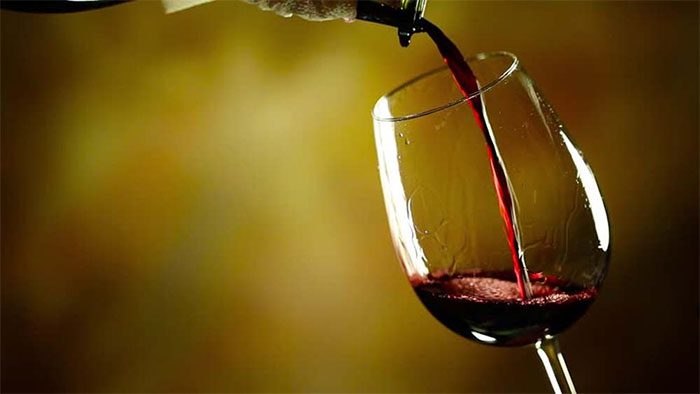Many people consume wine daily as a way to relax; however, experts indicate that any alcoholic beverage has the potential to cause cancer, according to Eat This, Not That.
“In fact, based on scientific evidence, all alcoholic beverages, including red and white wine, beer, and spirits, are linked to cancer. The more you drink, the higher your cancer risk,” nutritionist Kimberly Gomer told Eat This, Not That.
According to Gomer’s analysis of the link between alcohol and cancer, ethanol in alcoholic drinks breaks down into acetaldehyde, a known carcinogen. This compound damages DNA and inhibits the body’s ability to repair cells. Consequently, cancer cells can easily proliferate.
“Alcohol consumption can affect hormone levels such as estrogen, particularly in relation to breast cancer. The higher the hormone levels and the more cell division occurs, the greater the risk of cancer development,” she explained.

Alcoholic beverages are closely linked to cancer. (Photo: Focused).
Additionally, Gomer noted that alcohol causes the body to break down and fail to absorb vital nutrients such as vitamins A, C, D, E, and folate. These nutrients play a crucial role in protecting the body against cancer.
Furthermore, Gomer highlighted that alcoholic beverages are high in empty calories. Consuming beer and wine leads to increased caloric intake, which can result in weight gain, obesity, and a heightened risk of cancer.
“Alcohol is the third most dangerous carcinogen after tobacco and obesity. People need to understand that alcohol can increase the risk of at least six types of cancer, including colorectal, breast, esophageal, liver, stomach, and oral cancers,” Gomer stated.
However, this information is not widely known. Among 3,865 adults surveyed about the relationship between alcohol and cancer, nearly 80% were unaware that wine could cause cancer, over 70% did not know about the cancer risks associated with beer, and 68.8% were unaware of the link between alcohol and cancer.
Moreover, more than 50% admitted they did not know about the strong correlation between alcohol consumption and cancer.
Additionally, 1.7% of respondents believed that wine reduced cancer risk, 2.2% thought beer had a similar effect, and 10% believed that spirits could lower cancer risk.
From these findings, Gomer concluded that individuals should avoid alcohol consumption as much as possible.


















































